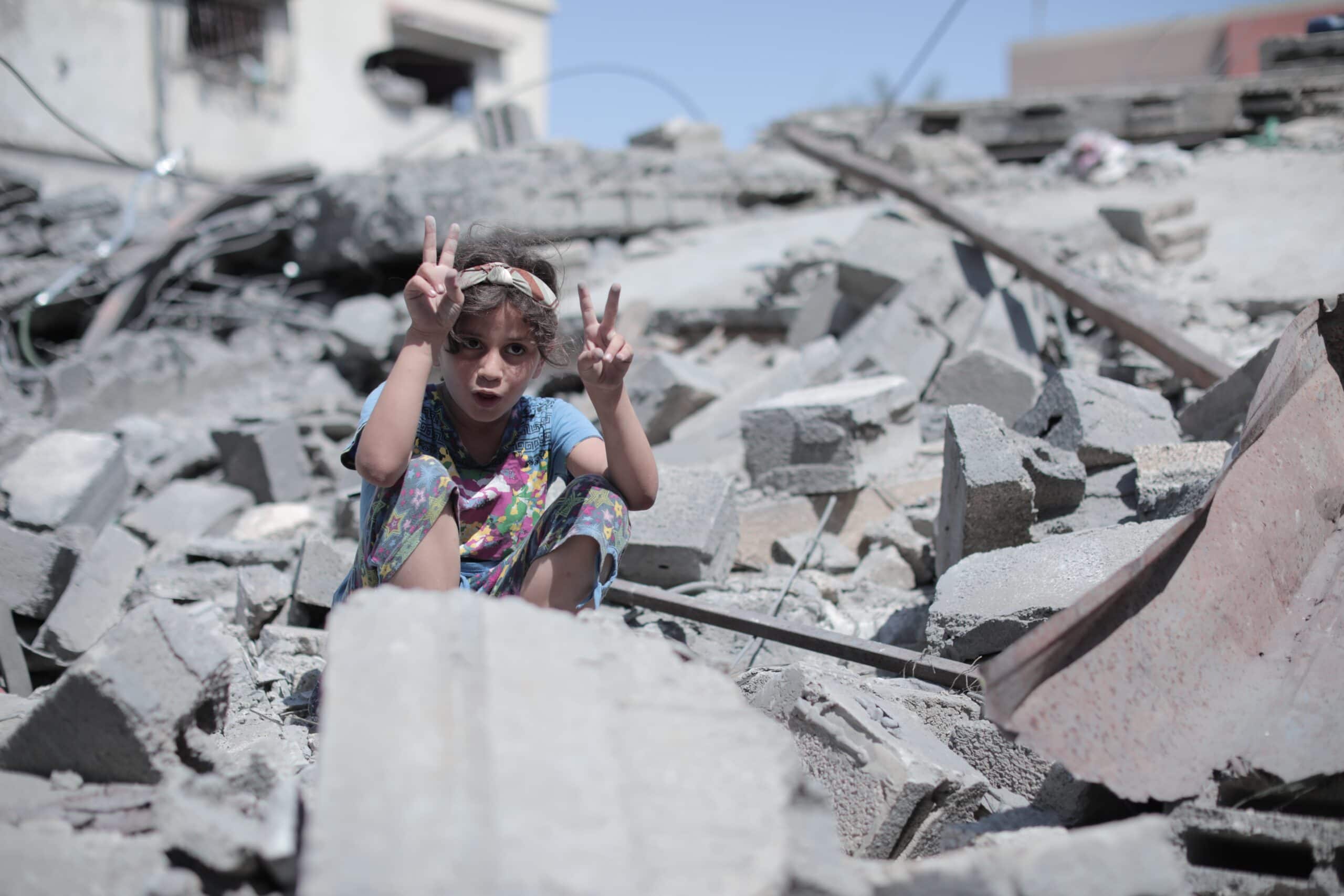For centuries, anti-semitism was an abhorrent pillar of European Christianity. It drove repeated pogroms against Jews, as when, in 1096, nearly 1,000 Jews were slaughtered by the Christians of Worms after ludicrous accusations regarding the poisoning of a local well. The Worms massacre was not unique, and centuries of similar violence and scapegoating formed a chorus culminating in the Nazi Holocaust. Even though the Holocaust itself was not the harvest of Christians, it was nevertheless one more ghastly fruit of the evil tree planted, watered, and tended for millennia by the spirit of antisemitism present within Christian churches.
The ongoing and centuries-long persecution of the Jewish people led them to long for a return to their homeland in which they would be safe from the constant threat of extermination. In 1948, just a few years after the liberation of the concentration camps in Europe, that much-longed-for homeland was established in the country of Israel.
The only problem, now all too familiar, was that for the intervening 2,000 years, others had lived in the ancient land of Israel. For centuries, the land which was once the kingdom of Israel had ceased to be a uniquely Jewish homeland. Instead, it had become a Muslim, Christian, and Palestinian homeland, too.
So when the country of Israel was formed in 1948, a people peacefully inhabiting a land they had called home for centuries was uprooted and displaced. Over a few brief decades, the newly dispossessed people were subjected to an endless onslaught of oppression: poverty, humiliation, joblessness, deportation, travel restrictions, and economic blockades. That such a sudden displacement followed by grinding cruelty would breed hatred and resentment cannot come as a surprise but is yet another predictably bitter fruit.
The world is not composed of some heroes and some villains but only of sinners “deprived of the glory of God” yet “justified freely by his grace” (Rm. 3:23-24). Likewise, the present war between Israel and Hamas is not a war of good against evil (however one may be tempted to assign such lots) but rather a war between sinners loved equally by God. For decades, Israel has been subject to persistent threats from its neighbors. Rocket strikes and terrorist-led assassinations have posed a constant menace. The horrific attack by Hamas on Oct. 7 is just the most recent and savage example. Whatever security Israelis feel in their newly claimed homeland has been hard fought.
On the other hand, the people of Gaza, abruptly dispossessed and exiled from their own land, have been subjected to decades of humiliation and crushing poverty alongside a nation armed and enriched by free commerce with all Western nations. Colonization and ferocious retaliation, the so-called “reprisal operations,” on the part of Israel have formed a steady drumbeat of suffering since the 1950s.
The problems appear intractable, and the consequences have once more proven themselves grisly. In less than a month, over 1,000 innocent Israelis have been murdered, and over 200 have been kidnapped and held hostage. Many thousands more innocent Palestinians have been massacred, buried under the rubble of their own homes and hospitals. From the first murdered Israeli mother to the last lifeless Palestinian child, humanity is confronted by scenes of horrific evil.
On the other side of the world, we Americans may feel far removed from the horrors of war in the Middle East. But, those of us who are Christian ought not to feel such a distance.
“Through his blood, shed on the cross” (Col. 1:20), Jesus reconciled the world to himself and, in doing so, poured out upon the Christian church not only the grace of salvation but also the power “to reconcile to himself all things” (2 Cor. 5:18) through him who has already won the victory of reconciliation on Calvary. We, as Christians, are not powerless in the face of misery and evil. On the contrary, as St. Paul once wrote to the Christians of Philippi, in Christ we are given strength “for everything” (Phil. 4:13). We can and must overcome evil through the power of good (cf. Rom. 12:21).
And the power of good does not return missiles for murder, nor does it slaughter one’s innocents for another’s. Indeed, the power of good is not and never will be the power of death. Instead, it is and has always been the power of love. The violence of war brings death, but the “violence of love,” to quote St. Oscar Romero, is “[one of] brotherhood, the violence that wills to beat weapons into sickles for work”1 and seeks not the death of the wicked, but that they “turn from their ways and live” (Ez. 18:23).
No Christian can be indifferent to the deaths of the over 1,400 Israelis killed in the Oct. 7th Hamas attacks nor to the murder of the over 11,000 Palestinians killed in retaliation. In his commentary on the meaning of solidarity and the need to rise above a mere “feeling of vague compassion or shallow distress” for those suffering “near and far,” Pope John Paul II wrote in his 1987 encyclical Solicitudo Rei Socialis (On Social Concern) that “we are all really responsible for all.” In the case of the current crisis, the entire history of Christian anti-Semitism has forged a special and profound bond of responsibility between Christians and those now suffering the horrors of war in Israel and Gaza. Such vast responsibility can feel, as St. Paul aptly wrote, like a hopeless “subjection to frustration” (Rom. 8:20). Indeed, to the mind of the world, the answer to such futile subjection is hopelessness. Brute violence will always beget brute violence, as we have already seen in the acts of both Hamas and the Israeli military.
But we are not without hope because we have the mind of Christ, and the mind of Christ thinks differently.
The mind of Christ is the logic of the Cross. It destroys sin and the power of death with the violence of love. It is a violence that doesn’t seek retaliation but the forgiveness of debts. We look to Christ to be reminded that when we were yet sinners, he humbled himself to become a sacrifice and, in so doing, broke the cycle of violence and lifted the world out of its slavery to sin and death (cf. Heb. 2:14-15).
For precisely this reason, Christians must demand peace instead of war, ceasefire instead of gunfire, and reconciliation instead of retaliation. As in Paul’s day, so too in ours. Such logic may seem impossible and even ludicrous. It may seem like “foolishness” and “a stumbling block,” but to those who have been called, it is “the power of God and the wisdom of God” (1 Cor. 1:23-24).
Christians are not and have never been called to follow the logic of the world, to take the side of Israel or Palestine. Instead, in accepting responsibility for our complicity in the evil before us, we are, as Pope Francis wonderfully put it, to “take just one side in this conflict: that of peace.” We are to “have the same mindset as Christ Jesus” (Phil. 2:5), who says even now: “I am making everything new”!
Photo by Mohammed Ibrahim
- Oscar Romero, The Violence of Love, v. ↩


